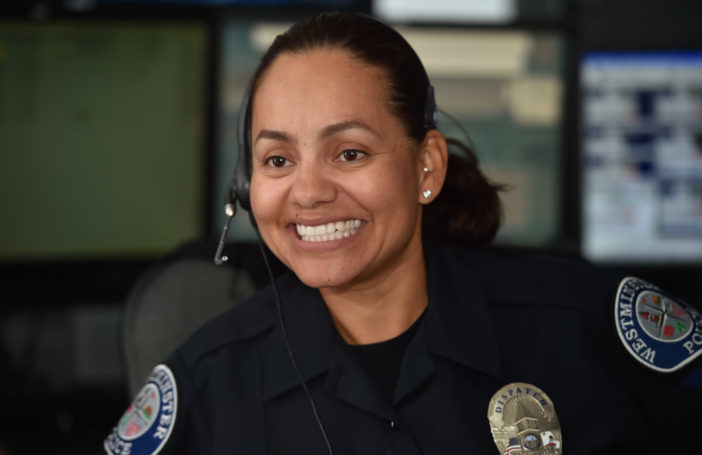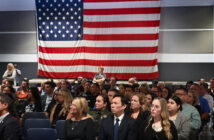There’s something about Dispatcher Leticia “Letty” Hernandez that inspires her to help.
Before she was a dispatcher, she worked at a hospital. Then, looking for a change, she became a dispatcher at the Westminster Police Department.
But there was something still left for her to do. And she realized what it was when her now-husband, Herman King, was diagnosed with Goodpasture syndrome two years ago. The autoimmune disease, which causes an immune system attack of the kidneys, lungs or both, left him in a state of total renal failure.
“It was just a different type of wakeup call for me,” said Hernandez, who returned to work April 4 after a four-week recovery from kidney donor surgery.
Following his diagnosis, King began dialysis and was put on the kidney donor waiting list – which could take six to 10 years to receive a kidney. The couple even learned to administer dialysis at home for his three-times-a-week sessions (a process that took six hours per session).
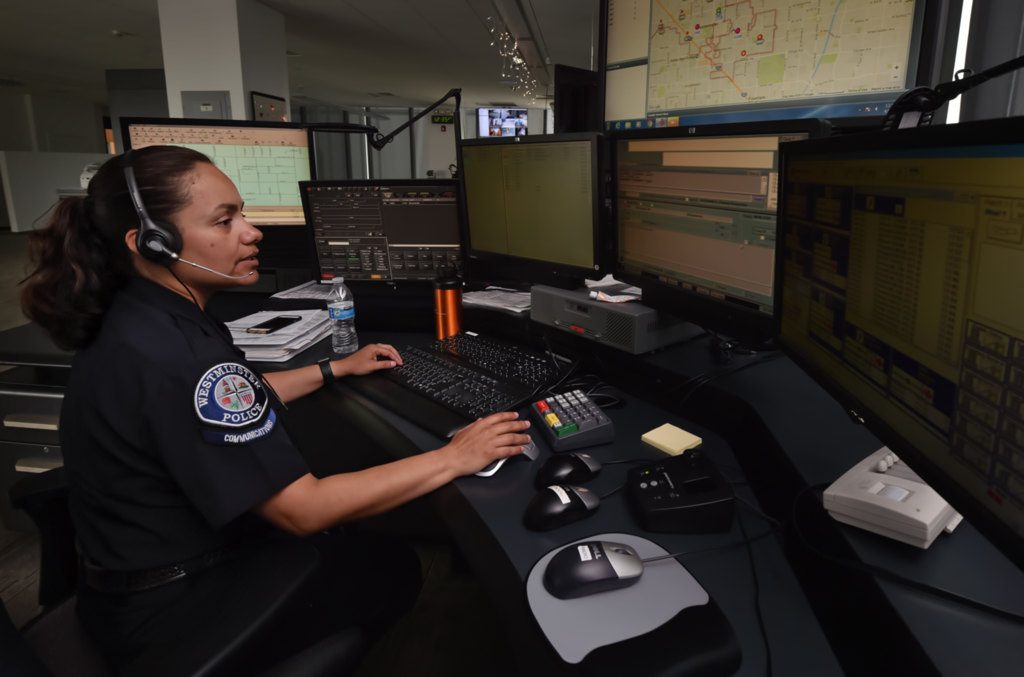
Westminster PD Dispatcher Leticia “Letty” Hernandez, who is back to work after donating one of her kidneys, takes 911 calls at the WPD dispatch center.
Photo by Steven Georges/Behind the Badge OC
But then they learned about Scripps Green Hospital in La Jolla’s living kidney donor program, which can facilitate transplants from living family, friends and “altruistic donors.”
It was an altruistic donor walking into Scripps one day who started the chain of events that left King and nine others with donated kidneys and Hernandez as a donor herself.
“Imagine to walk in somewhere and just say, ‘Hi, I want to donate my kidney,’” said Hernandez.
Hernandez, in good physical health and with a blood type of O-positive, was a strong candidate herself to donate a kidney – which she wanted to do for King (“I didn’t even think twice”).
But because of Scripps’ stringent testing and requirements in order to achieve optimal chances for a successful transplant, doctors opted to find a better transplant donor for King rather than Hernandez since her kidney was slightly smaller than his.
“I really wanted to give to him,” she said.
Fortunately, King didn’t have to wait long.
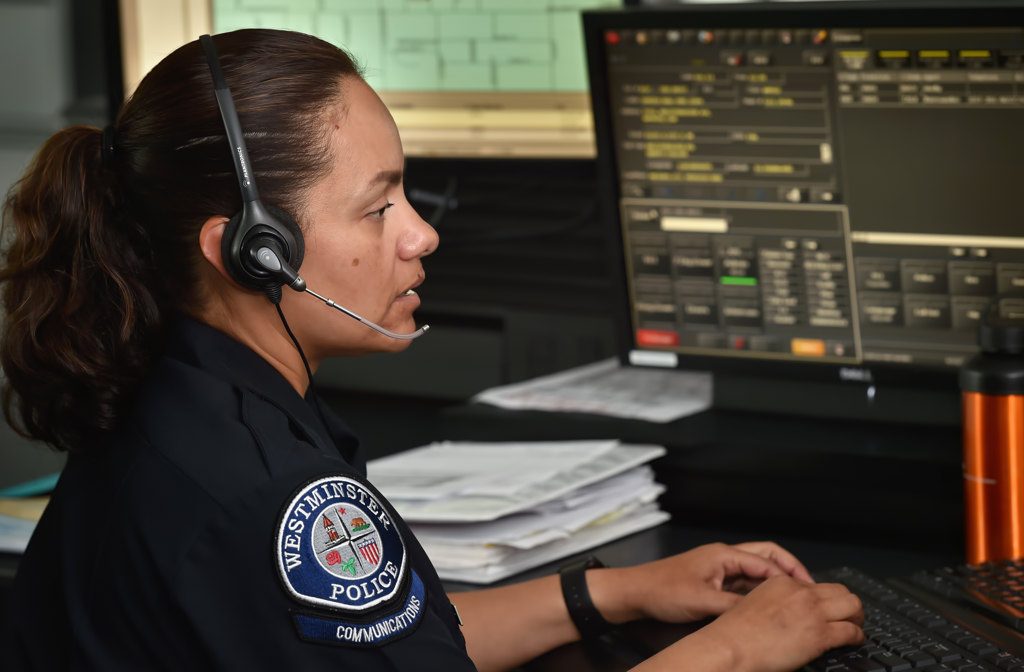
Westminster PD Dispatcher Leticia “Letty” Hernandez, who is back to work after donating one of her kidneys, takes 911 calls at the WPD dispatch center.
Photo by Steven Georges/Behind the Badge OC
“His kidney happened to be a perfect match,” Hernandez said of the donor.
King’s Jan. 17 surgery went well, as has his recovery.
Then, five weeks ago, it was Hernandez’s turn to make her kidney donation to return the favor that a benevolent stranger did for them. She was a perfect match for a man in Georgia – who then had someone in his personal circle who donated a kidney, and so on and so forth.
“It’s not that big of a deal,” said Hernandez, who is very modest about her role in the domino of donations that resulted from the altruistic donor. “I believe in pay it forward.”
It wasn’t the first time Hernandez considered donating for the sake of someone’s health. Years ago she was nearly a donor for bone marrow. Unfortunately, the recipient passed away before the transplant could take place.
Even with the donation she just took part in, she still has a strong desire to help. And the couple has talked about possibly helping train others on dialysis in how to administer the treatment at home, as well as speaking to potential kidney donors on behalf of Scripps’ donor program.
“I wish I could grow another one just to do it again,” she said.
With a sunny disposition and strong sense of optimism, the senior dispatcher (she’s been at the WPD for 12 years) has a new outlook on her job. While she’s always had a strong sense of empathy for 911 callers, she now has an increased sense of urgency because of King’s experience.
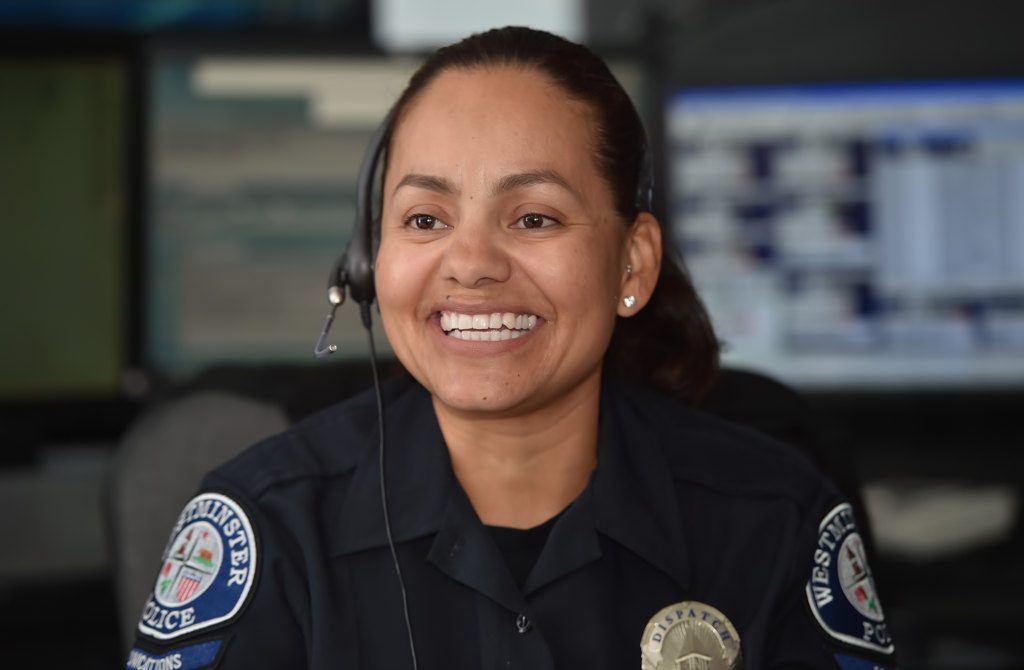
Photo by Steven Georges/Behind the Badge OC
When King began suffering from symptoms, he didn’t seek treatment immediately, which probably led to more advanced stages of the disease.
“‘We’re surprised you’re not dead,’” Hernandez said was the response from the urgent care doctors.
Because of that, Hernandez understands even more that every caller should be treated very seriously.
“No matter how little the situation is … for some people, it’s a big deal,” she said. “It’s always good to think the worst, because you just don’t know.”
Back at work, celebrating National Public Safety Telecommunicators Week April 9-15 with her fellow dispatchers, she’s grateful for her job and husband’s health.
Hernandez and King have only been married a year, though they’ve been together for 16 now. They decided to tie the knot after he was diagnosed.
“Things always fall in place one way or another,” she said.
 Behind the Badge
Behind the Badge
